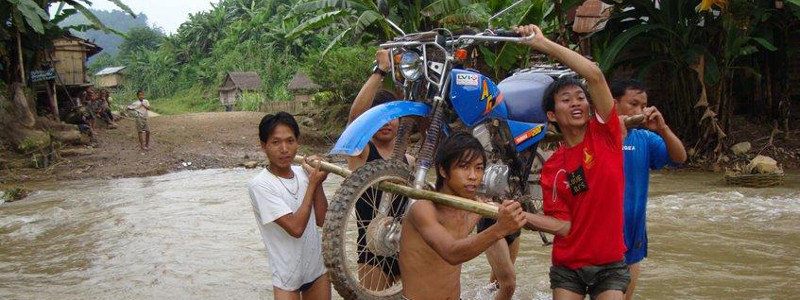Relatives hostile to Christian faith, flooded roads that damage motorcycles, government restrictions on travel – all can instill fear in both native missionaries and new Christians in Laos.
In one of the world’s last bastions of communism, a 2016 religion law known as Decree 315 threatens to cripple efforts to spread the gospel, as it requires prior permission to carry out religious activity beyond a religious group’s building.
Native missionaries seeking to bring the salvation message to neighboring villages are delayed or denied. One church leader reported that Ministry of Home Affairs (MOHA) officials required him to submit travel plans in advance for permission that could take as long as 20 days to process.
“Missionaries have expressed their complaints about the difficulty of the new Decree 315 law, which restricts the rights of Christian activities,” the director of a native ministry said. “They cannot just go to visit another village freely as they did before. They must get a paper of approval from the local authorities and state the purpose of the visitation, what reason, and who is going.”
The decree empowers the government to stop religious activities – or even beliefs – that differ from “policies, traditional customs, laws, or regulations.”
Religious leaders reported various incidents throughout the country related to obtaining travel permission, according to the U.S. State Department’s 2018 International Religious Freedom Report.
“Some religious officials were detained even with proper travel authorization,” though most cases were resolved within hours, the report states.
Among reports that the decree requirements were “onerous, unrealistic, and used to restrict religious practices,” Christian groups cited problems registering and constructing churches and obtaining permission to travel within the country, according to the report.
Religious activities in another village require approval from district authorities; for activities in another district, permission must be obtained from provincial authorities; for activities in another province, permission must be obtained from national authorities.
“Religious groups must submit annual plans of all activities, including routine events, in advance for local authorities to review and approve,” the religious freedom report states. “The decree states nearly all aspects of religious practice – such as congregating, holding religious services, travel for religious officials, building houses of worship, modifying existing structures, and establishing new congregations in villages where none existed – require permission from a provincial, district-level, and/or central MOHA office.”
The decree empowers MOHA to stop religious activities – or even beliefs – that differ from “policies, traditional customs, laws, or regulations,” and may stop any religious activity “threatening national stability, peace, and social order…or affecting national solidarity or unity between tribes and religions,” according to the report.
Besides the decree’s sweeping powers to stop the salvation message, community opposition itself has long instilled fear. One team of native missionaries recently led a 50-year-old woman to Christ, and when she began reading her Bible, praying and listening to a Christian radio program, her husband and children became furious.
“They strongly opposed her and told her to stop believing in Jesus and to renounce her faith,” the ministry director said. “If she did not do that, they would force her to leave the house. The village authorities also told her to stop believing in Jesus Christ, and said that if she would not listen, she had to leave the village immediately.”
A native missionary encouraged her to be strong, not be discouraged, stand firm in her faith in the Lord and not afraid, he said.
“Please pray for her, that she will stand firm in her faith in the midst of wolves,” the director said.
Native missionaries in Laos also face natural obstacles; last year’s rains were especially heavy, causing massive flooding.
“The roads are so bad that it ruins their motorcycles, so their motorcycles often break down, and they are always repairing them – this costs a lot,” the director said. “They also face a lot of challenges in meeting the needs of the people, because lots of the Christian do not have enough rice to eat this year.”
The native missionaries are poor like those they are serving, with barely enough to support their families even as they hold other jobs. A total of 106 pastors, lay leaders, evangelists, church planters, elders and administrative personnel oversee nearly 70,000 Christians in 11 provinces, he said.
They sometimes find they do not have enough funding for evangelistic travel costs such as visitation and follow-up. At times they do not have enough food for their families and for the cost of living.
They press on in spite of all these obstacles for the joy of seeing people come to saving faith in Christ, he said.
“Why do they do it? We are doing the work faithfully and getting concrete results,” the leader said. “Also, the people love, respect and welcome the teams, who show loving care for their needs: spiritual and physical, especially when people are sick and die, performing weddings, dedicating new houses, and holding Christmas celebrations. The team often says that if anyone visits any village among the Khmu Christians and other tribal groups where they are working, they should just mention that they are with the team that visited before, and they will definitely receive a special welcome and treatment.”
Such native missionary teams are facing similar obstacles, and enjoying the same spiritual fruits, in countries throughout Southeast Asia. Please consider a donation today to encourage and equip them in their work of evangelism and discipleship.

